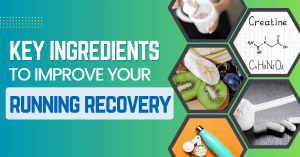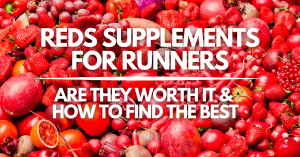Last week, we took a look at some research on recovery after a marathon or ultramarathon. Some scientific experiments, though not all, have indicated that taking vitamin C supplements before and after running a very taxing race like an ultramarathon can decrease your risk of getting sick in the weeks following the race.
The logic behind this is that intense aerobic work creates a large amount of oxidative stress, a chemical reaction in your body which creates inflammation and suppresses your immune system.
By taking vitamin C—an antioxidant—you can change how your body reacts to a massive stress like a marathon or ultramarathon.
But runners aren’t just vulnerable to illness after major events like an ultramarathon.
Although moderate amounts of running improves your resistance to getting sick when compared to a sedentary person, when you push your mileage and intensity higher, you become more vulnerable, probably because of the same kind of oxidative stress.
Will taking antioxidents regularly improve recovery?
“Oxidative stress” is an increasingly popular topic, both in legitimate science and in nutrition and supplement-related marketing. It’s been associated with aging, cancer, and all sorts of other health maladies.
But taking vitamin C or any other antioxidant supplement isn’t a surefire way to ward off these ills.
Much in the same way we now understand the role of inflammation in training, trying to block all of the harm from hard training with a supplement isn’t so straightforward either.
Oxidative stress is also essential
In a 2011 review study, Tina-Tinkara Peternelj and Jeff Coombes from the University of Queensland in Australia examined a slew of studies on exercise, oxidative stress, and antioxidant supplements. As it turns out, the biology of the situation is more complicated.
While oxidative stress has indeed been associated with both acute and chronic illness, it is also connected to the normal operations of every cell in your body.
Reactive oxygen species, the chemicals generated by oxidative stress, are “essential to the development and optimal function of every cell,” write Peternelj and Coombes.
In the context of exercise, these reactive oxygen species are part of the stress on your body that induces improvement. Blunting that oxidative stress will necessarily lead to less adaptation from the stress.
In real-world terms, this means you won’t get as much of a benefit from your workouts if you’re loading up on antioxidant supplements.
Too many antioxidents can reduce training benefits
This effect was demonstrated in a 2008 study by a group of researchers at the University of Valencia in Spain.
In two experiments, the researchers tested the effects of vitamin C supplementation on adaptations to an exercise program both in lab rats and in sedentary men. The rodent and human subjects were divided into two groups, one of which was given a vitamin C supplement, and another which was given nothing.
After an eight-week exercise program, the rats and the men had their VO2 max measured, and the rats underwent a treadmill run to exhaustion.
In all cases, the vitamin C group had a much less pronounced adaptation to the training, though the small number of subjects made only the run to exhaustion in the rats reach statistical significance.
Researchers determined the root cause of the poor adaptation in the rats using some sophisticated biological techniques. By sequencing genetic material from the rats’ muscles, the scientists demonstrated that the
Vitamin C supplement prevented the creation of mitochondria, the “power plants” of your muscle cells that are essential for endurance performance.
Conclusion
So, is loading up on vitamin supplements a good idea?
Probably not.
But you should still keep plenty of fresh fruits and vegetables—natural sources of antioxidants—a part of your diet. Even though taking isolated antioxidant supplements doesn’t appear to do much good for your overall health, eating fruits and vegetables makes a big difference.
Though research into fruit and vegetable consumption in athletes is spotty, it’s a good bet that natural sources of antioxidants don’t result in the same kind of impairment to exercise adaptations that accompany high doses of isolated antioxidants like vitamin C.








